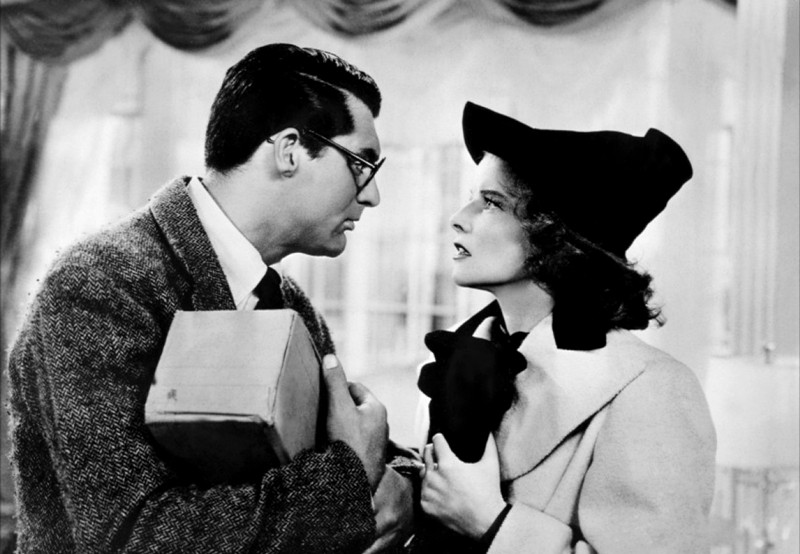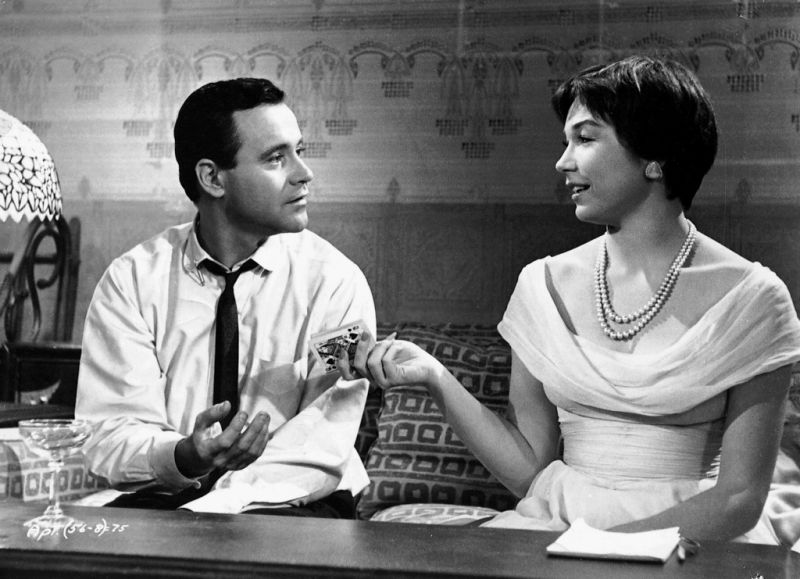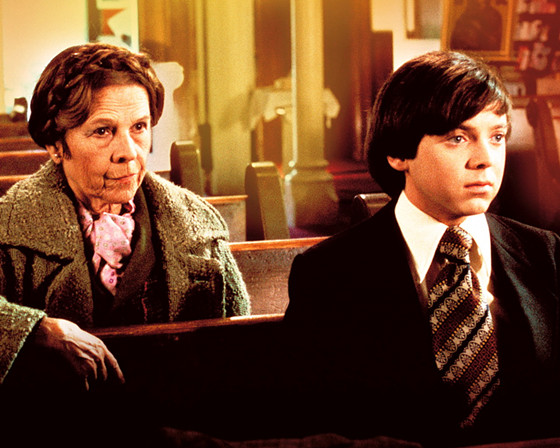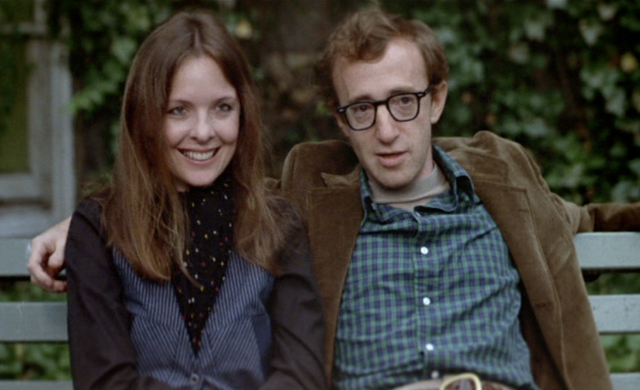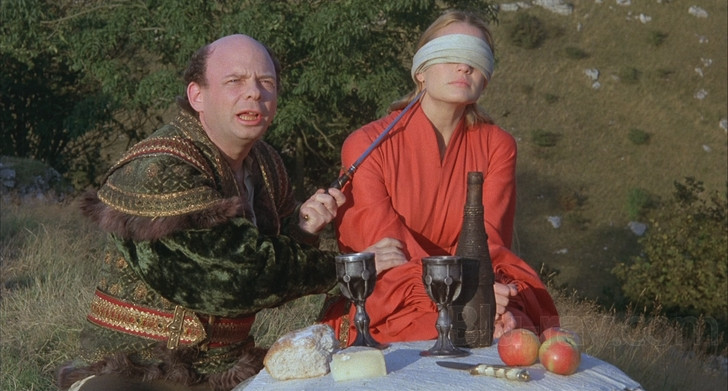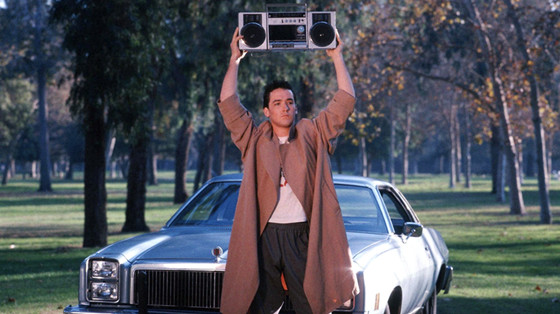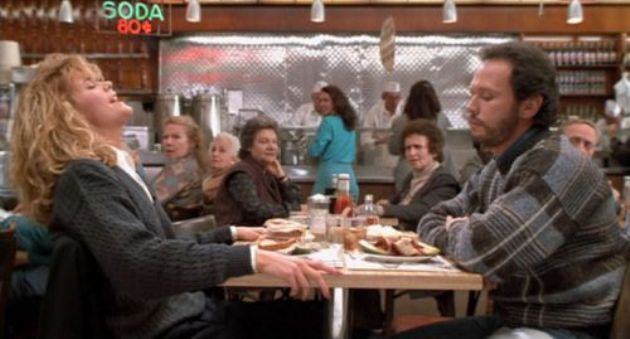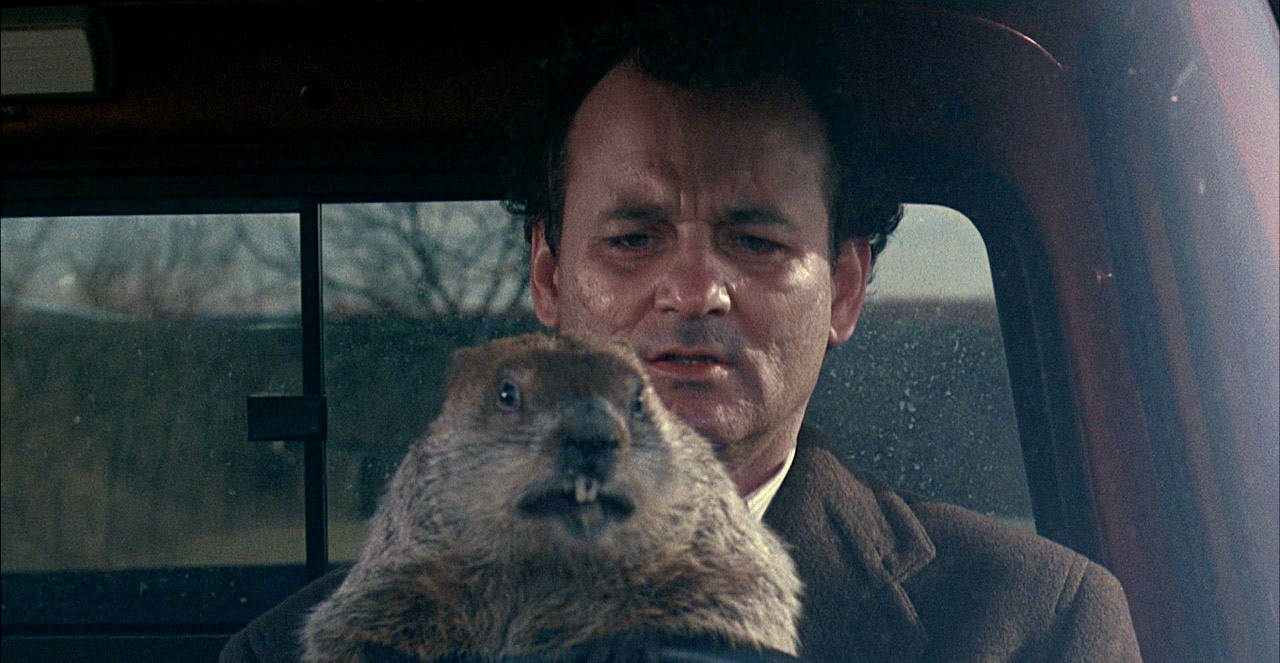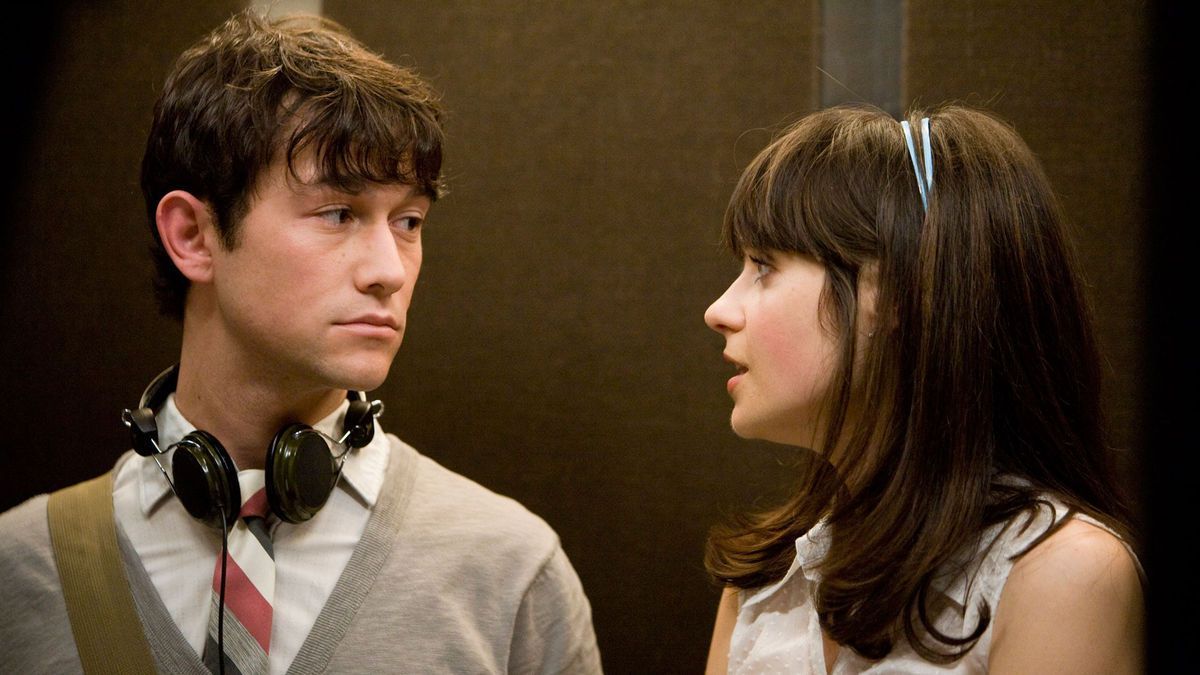
Romantic comedies too often get a bad rap, especially among male viewers. Sure, there are some films with this label whose cheesy dialogue and lack of realism make them almost unwatchable, but there are plenty of clunkers that can be found in any film genre.
Still, there are others that come along to remind us why we enjoy the movies: the naïve vulnerability, the sincere humanity, and the brief escape from reality. So much of human nature is captured within the frames of these films, yet they are often overlooked in favor of more gripping dramas or unadulterated slapstick amusement. As romantic comedies ride the line between the two genres, they offer a more realistic view of existence – even at their most outrageous.
In an attempt to step on as few toes as possible, this list is ordered chronologically rather than in order of importance.
1. Bringing Up Baby (1938)
An argument could be made that Susan Vance was the first “manic pixie dream girl” in cinema history. After being slammed by critics following a series of box office flops, Katherine Hepburn delivers a performance that is a harmonious blend of boisterous and vulnerable in what is has become one of her most celebrated roles.
Bringing Up Baby gives birth to all of the shameless whimsy of screwball comedies and all of the glamorous romance of the golden age of Hollywood. The pairing of Hepburn and Cary Grant formed a pure, cohesive chemistry that is still trying to be replicated to this day. Even among a filmography as devoid of blemishes as Howard Hawks’s is, this masterpiece stands out. Plus, you’ve got to admire the arrogance and lunacy that had to exist to film on set with a live leopard.
2. The Apartment (1960)
Billy Wilder had already cemented his place in the hearts of cinema lovers with well-loved classics like Sunset Boulevard and Some Like It Hot, but he directed a very different kind of movie in 1960. Whereas most of his work had fallen primarily into either the comedy or drama camps, The Apartment blended the two genres so seamlessly that it felt as if it were truly capturing the reality of the era.
The jokes land perfectly, but there are moments when C.C. Baxter (played beautifully by Jack Lemmon) faces absolute despair. In the midst of the discussion of loneliness, Wilder shines a light on misogyny and gender politics in the workplace. This is a movie that reminds us that while comedies are meant to entertain, there is no reason why they can’t start more serious conversations.
3. Harold and Maude (1971)
In one of the least conventional efforts on this list – particularly for its time – this black comedy reflects the eccentricities and rebellion of the cinema of the 1970’s. Harold’s morbid obsession with death, displayed by his elaborate fake suicide attempts and his fascination with funerals, can be interpreted as a dissatisfaction with the state of humanity. He is able to find a kindred spirit in Maude, who has a similar intrigue for the macabre.
In circumnavigating the social barriers of age, the two are able to find joy in life through the company of one another. Truly, this is a film that fully examines why people are drawn to one another, rather than forcing two unlikely characters into a brief romance. The existential themes mixed with the acoustic soundtrack by Cat Stevens have solidified Harold and Maude’s cult status as the film, much like Maude, has only improved with age.
4. Annie Hall (1977)
There is a reason why this is Woody Allen’s most praised film. Annie Hall tells a realistic love story full of wit and humor, but it does so in an unconventional way. Expectations of the viewers are shattered as Allen breaks the fourth wall to complain to us about his relationship troubles, as characters have conversations with their former selves, and as the focus jumps between time and space without warning or explanation.
Allen also shows a much more serious side of himself than he had in his previous slapstick films, making statements about gender stereotypes, cultural identity, and the nature of human happiness. Ranking among the director’s most delicately crafted works, Annie Hall doesn’t have a line of dialogue that is out of place and it bites just as deep today as it did when it was released in 1977.
5. The Princess Bride (1987)
In what is easily one of the most quotable movies of all time, Rob Reiner beautifully adapts William Goldman’s classic novel into a film that is required viewing for many pop culture references. The overwhelming charisma and universal themes of this movie allow just about any viewer to find pieces of themselves within its frames.
Since the story is being told from an outside party, the tone is able to shift as the boy and his grandfather argue over what makes for a compelling tale. This allows the viewer to place themselves in the shoes of either character, depending on where they find themselves in life, and see this magical world through their eyes. The Princess Bride defies conventional genre expectations and creates a world that is as inviting as it is prophetic.
6. Say Anything… (1989)
All of the greatest films explore concepts that are applicable outside of the genre. Say Anything… deals with the aimlessness of youth – particularly in determining a career pathway – as seen through the eyes of both the slacker and the overachiever.
The film strays from the typical romance tropes by giving us characters that are innately recognizable for being deeply genuine. Cameron Crowe’s directorial debut doesn’t play out like a Hollywood glamor piece; it is a film that works because of its ability to harness reality and allow the audience to uncover meaning for themselves, rather than taking a stance of moral authority.
Lloyd Dobler represents the anxious and overwhelmed voice of the MTV generation as they define who they are outside the confines of their parents’ homes. The tremendous sincerity of this movie catapulted John Cusack into stardom and convinced audiences everywhere to go out and buy a Peter Gabriel cassette.
7. When Harry Met Sally… (1989)
This is the movie that set all of the standards and conventions of the genre that the rest of the movies on this list either embraced or destroyed. When Harry Met Sally… takes a deeper look of the complicated anguish that accompanies relationships. In a movie that can be uproariously funny and also establishes a tender warmth, Rob Reiner again shows his extraordinary ability for shifting tones without betraying the essence of either one.
The cutaways to the older couples recounting their first encounters with each other marvelously display the universality of love across cultures. Billy Crystal and Meg Ryan are able to construct a repartee that is both hilariously witty and strikingly believable. When Harry Met Sally… perfectly captures the work and passion involved in creating and maintaining a successful romantic relationship.
8. Groundhog Day (1993)
It would be entertaining seeing just about anyone fated to relive the same day over and over, but Bill Murray uses his brilliant comedic timing and piercing wit to create a performance that is both memorable and poetically poignant. Countless viewers will be able to relate to the feeling of hopelessness that comes with monotony, even if they don’t get the satisfaction of uninhibited action without consequence.
While this movie is accessible and aims to please a varied audience, it poses some extremely heavy philosophical questions. We see Phil’s approach to the situation stretch the entire range of the spectrum, whether he is using his predicament to take advantage of women or he is falling into destructive despair. Groundhog Day demonstrates the difficulty to live in the moment, especially when you don’t feel that you are able to make an impact on your surroundings.
